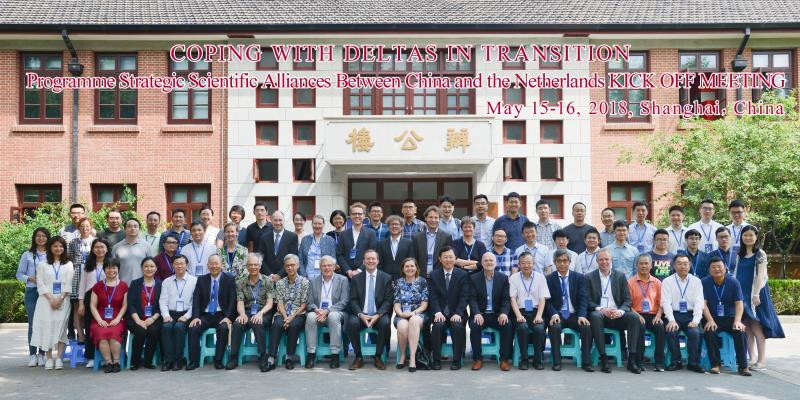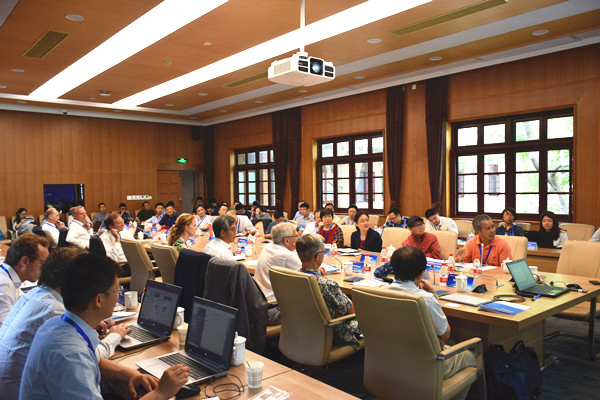The kick-off meeting of the joint research project ‘Coping with Deltas in Transition’, which is the Intergovernmental cooperation on science and technology innovation of the National Key Research and Development Program, was held at East China Normal University during May 15-16, 2018. This project is supported by the Programme Strategic Scientific Alliances (PSA) between China and the Netherlands and funded by MOST and KNAW, with the vision of establishing a new framework of long-term scientific cooperation with mutual benefit to the Netherlands and China.
The theme of the project is coping with deltas in transition, with the aim to understand the characteristics, processes and mechanisms of the deltas in transition, to predict possible ecological effects, and to put forward coping strategies. This project has been selected for the third phase by PSA since 2004 after joint assessment and selection. East China Normal University takes the lead in the project on the Chinese side, in cooperation with Tsinghua University, and Prof. Qing He is the Chinese principal investigator (PI). Prof. Zheng Bing Wang from the Delft University of Technology (TU Delft) is the Dutch PI of the project, with the Royal Netherlands Institute for Sea Research (NOIZ) and Deltares on the Dutch side as partner institutions.
The opening ceremony was hosted by the director of SKLEC, Prof. Shu Gao, in the presence of distinguished guests from China and the Netherlands, including the vice president of ECNU, Prof. Rongming Wang, the director of the International Exchange Division, Prof. Yunxuan Zhou, and the vice president of TU Delft, Prof. Peter Wieringa etc. Warm greetings and congratulations were given by the two vice presidents, and also by the Deputy Consul General of the Dutch Consulate in Shanghai, Ms. Onny Jalink, Prof. Binliang Lin from Qsinghua University, Dr. Dirk-Jan Walstra from Deltares, and Prof. Tom Ysebaert from NIOZ. They spoke high of the Sino-Dutch cooperation and wish great success of this Phase III PSA project.
The Chinese and Dutch colleagues had fruitful discussion on the project during the kick-off meeting. Dr. Dirk Jan Walstra gave a lecture on recent progress of Delft3D model in modelling subsurface sedimentation layers; Prof. Han Winterwerp delivered a lecture on estuarine system response and regime shift under human mismanagement, and Prof. Stefan Anrninkholf introduced remote monitoring of sandy beaches at local and global scales. Four discussion sessions were arranged according to the four themes of the proposal. Major outputs of the meeting include clarification of future research and collaborative subjects, exchange of students and scholars, and ideas of joint field work. After the meeting, some of the Dutch colleagues went to the Eastern Chongming Headland to explore the salt marshes and mud flat for future campaign sites.


